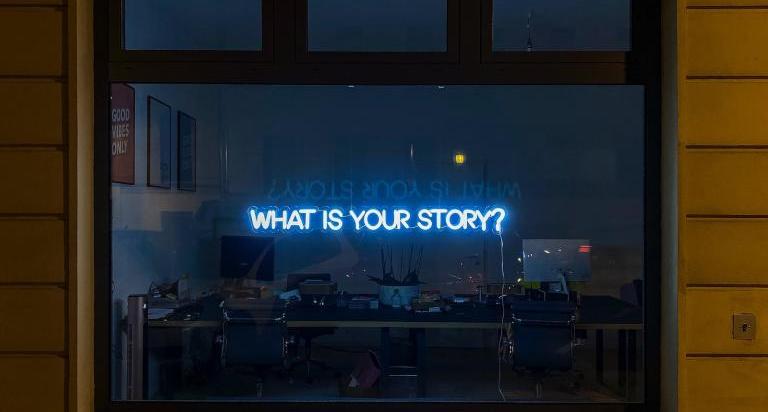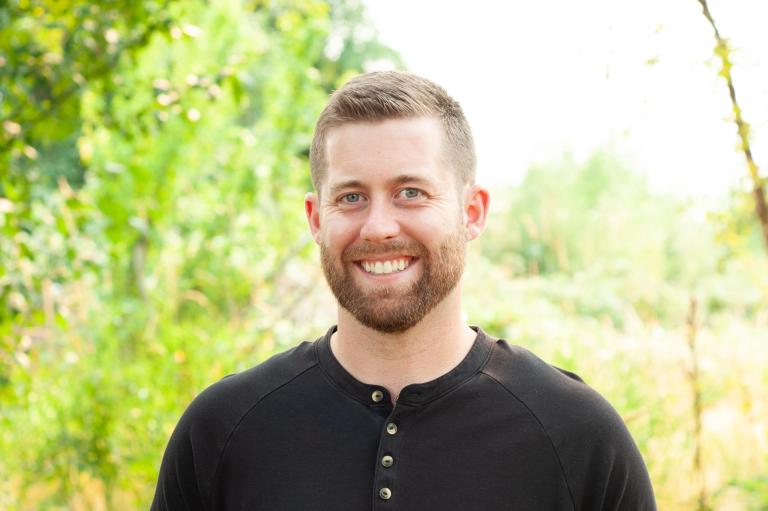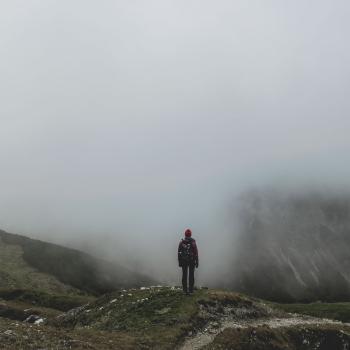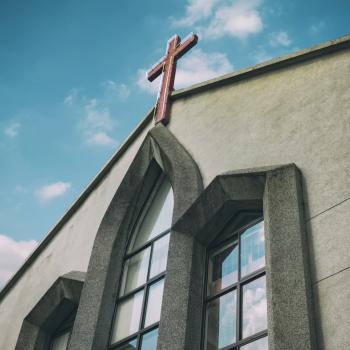In the community organizing world, there is a saying: questions are more important than answers.
This is part of why I haven’t had a hard time walking away from images of the Divine as an all-powerful and all-knowing skygod. This god and those who engage with it don’t seem that into questions – which, as an educator I know, means they aren’t that interested in growth. The religion that worships such a god of control is in the business of power and behavior management, neither of which bring forth healthy development.
Instead of seeking certitudes through my spirituality, I’ve found myself much more drawn to the cultivation of curiosity: what if being “spiritual” really means to develop the capacity to sit with and witness the Divine in all things?

A few years back, I remember walking amongst a forest and being absolutely astonished by the beauty of the trees and the ways they swayed in the gentle breeze. I could hear little critters running and making their way through the underbrush, birds racing through the skies above me, and the trees…the trees simply did their dance. They bore witness to the elegance of the current moment. They were part of it just as I was.
It made me curious.
What was happening beyond my ability to see and hear? What were the trees communicating amongst themselves? Where were the birds off to and what was it they were singing? Were the little squirrels playing together or were they in the midst of a great hunt?
For me, the connection to life that breathes such questions is spirituality. I don’t feel the presence of any hierarchical and Zeusian figure looking down upon us, no Santa Claus-like man deciding whether or not we’ve adhered to his codes for the day. There is simply, as Cole Arthur Riley writes, “a fidelity to beholding the divine in all things.” There is mystery and the questions that spring forth from it.
Three Tools for Centering our Curiosity
Below are three tools I’ve found helpful in cultivating such a curiosity and mystery-centered spirituality.
Silence
What is it that brings you into the depths of your own life? Silence is just that for me. It provides me with the spaciousness to sit with myself and learn to let go of the inner narratives and critiques that so often have created who I think I am. And it is through silence that I feel part of something bigger than myself – I can sit with and learn to recognize the presence of divinity in the current moment – every moment.
There are many silent meditation practices from across spiritual traditions. While many of us have some contact with them through secular mindfulness, I have also found centering prayer to be a helpful practice in my own life. You can learn my approach to contemplative prayer here.
Shadow Work
In the spiritual life, shadows represent the parts of ourselves we’d rather nobody see. They include our negative self-narratives, our fears and failures, and our inner contradictions. These are things we all have – and they’re the worst. They shape the way we see the world, interact with others, and even treat ourselves. (Perhaps most especially how we treat ourselves.) By turning our attention toward these parts of ourselves, even when it feels like everything in us wants to go the other way, we can begin to remove the barriers that stop us from seeing ourselves and the world as they really are.
If you’re interested in this kind of inner exploration, I will be hosting another of my Shadow Work: Learning to See Deeply workshops in the next few months. Visit my website and sign up for details!
Solidarity Work
Cornel West once famously said “Justice is what love looks like in public.” A spirituality of curiosity and connection brings us deeper into the fabric of our communities, asking: How can I be present here in a loving way? In the midst of the unjust and the sorrows birthed from fragmentation, solidarity is our act of repair. It involves deep listening and material response, not to fix a community but to love with it. Solidarity is an act of being with, not content with charity or “mission” or building a new non-profit, but dedicated to the messiness of relationships in the here and now.
It’s through curiosity that we learn to ask the right questions – not to get answers, but to explore further. The goal is not certitude, but instead it is to “center down,” as Howard Thurman taught. The goal is not an endpoint, but a process of deepening. It is only in this way that we will be able to grow beyond who we are now – growing down, if you will – and experience transformation.













